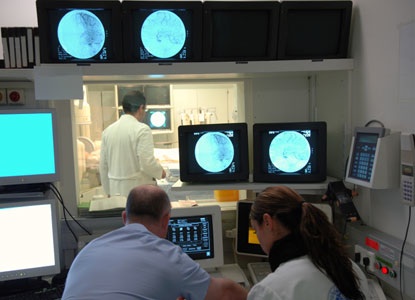By Vivienne Russell | 25 October 2011
NHS trusts are failing to buy and use expensive, hi-tech equipment in a way that provides value for money and equal service standards, according to MPs.

A report published by the Public Accounts Committee today found that NHS trusts in England spend about £50m each year on Magnetic Resonance Imaging (MRI) and Computer Tomography (CT) scanners, as well as Linear Accelerator machines, which are used for the treatment of cancer. The total value of such machines in the NHS in England is estimated at £1bn.
Since 2007, responsibility for procuring and managing these machines has been devolved to individual trusts. But the PAC criticised this fragmented approach as wasteful.
It also highlighted the ‘unacceptable’ variations in the use of machines between trusts. The average numbers of scans varied from around 7,800 per year to almost 22,000 per year, while patient access to scans also varied widely.
PAC chair Margaret Hodge said: ‘We were shocked by the unacceptable response times for certain conditions. A modern NHS should not allow 50% of people who have a stroke to wait more than 24 hours for a scan.’
Data on machine use and costs should be made available to allow trusts to compare their performance, the MPs said.
Trusts should also make more use of framework agreements negotiated with suppliers by the central procurement body NHS Supply Chain. Only one in five machines are purchased through NHS Supply Chain, the committee found. These agreements too could provide better value for money by bundling orders together across trusts.
‘All [NHS Supply Chain] orders have been placed individually with no aggregation to larger volumes,’ the PAC said.
‘This is a lost opportunity to use collective buying powers to get lower prices and we expect NHS Supply Chain and other collaborative procurement bodies to work with trusts to share plans on future needs and get better prices and value for money by exploiting the joint buying power.’
Hodge added: ‘At a time when the NHS has to make £20bn of savings, it is unacceptable that money is being wasted.
‘The Department of Health must set out how it is going to drive value for money in a devolved world where every trust is an independent foundation trust not answerable to the department.’





















